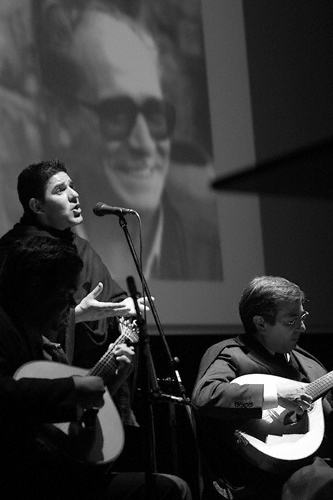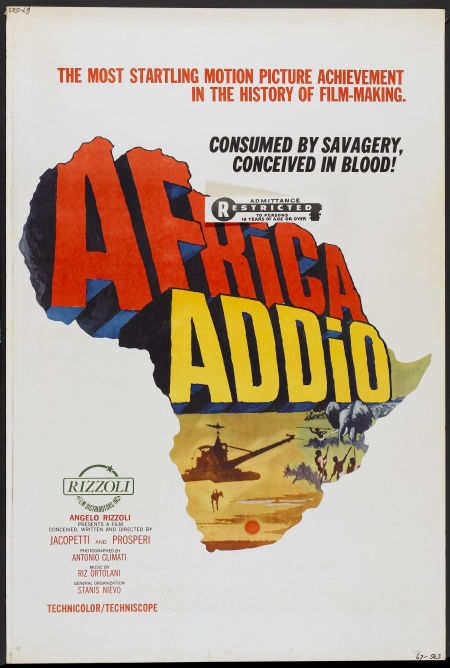quinta-feira, 9 de julho de 2009
I'm Happy, she said
>Ora zumba!
São algumas horas em que estou sem fazer nada deitado à espera de dormir e nada feito, nada de João Pestana ou carneirinhos.
Nada melhor que procurar a banda sonora melancólica ideal para ver como é bom o descanso e últimos cartuchos.
quarta-feira, 8 de julho de 2009
Malta, acabou-se a patareca para toda a gente...
Scientists claim sperm 'first'
How to make human sperm in the lab
| By Fergus Walsh BBC medical correspondent |
Scientists in Newcastle claim to have created human sperm in the laboratory in what they say is a world first.
The researchers believe the work could eventually help men with fertility problems to conceive.
But other experts say they are not convinced that fully developed sperm have been created.
Writing in the journal Stem Cells and Development, the Newcastle team say it will be at least five years before the technique is perfected.
They began with stem cell lines derived from human embryos donated following IVF treatment.
The stem cells had been removed when the embryo was a few days old and were stored in tanks of liquid nitrogen.
The stem cells were brought to body temperature and put in a chemical mixture to encourage them to grow. They were "tagged" with a genetic marker which enabled the scientists to identify and separate so-called "germline" stem cells from which eggs and sperm are developed.
The male, XY stem cells underwent the crucial process of "meiosis" - halving the number of chromosomes. The process over creating and developing the sperm took four to six weeks.
Understanding sperm
The Newcastle team say the sperm were fully mature, mobile sperm and they have produced a video to back up the research.
Professor Karim Nayernia at Newcastle University and the NorthEast England Stem Cell Institute says: "This is an important development as it will allow researchers to study in detail how sperm forms and lead to a better understanding of infertility in men - why it happens and what is causing it.
"This understanding could help us develop new ways to help couples suffering infertility so they can have a child which is genetically their own.
"It will also allow scientists to study how cells involved in reproduction are affected by toxins, for example, why young boys with leukaemia who undergo chemotherapy can become infertile for life - and possibly lead us to a solution."
| Josephine Quintavalle Comment on Reproductive Ethics |
But Dr Allan Pacey, a sperm biologist at the University of Sheffield, said he was not convinced the sperm were fully developed.
"The quality of the images is not of sufficiently high resolution and I would need more data. They are early sperm, but functional tests would be needed to know exactly what has been achieved."
The sperm cannot be used for fertility treatment as this is prohibited under UK law. The scientists in Newcastle say it will be at least five years before the technique is perfected - when they believe it should be available to help infertile men.
This research also raises ethical issues. Josephine Quintavalle from Comment on Reproductive Ethics (Corethics) said: "This is an example of immoral madness. Perfectly viable human embryos have been destroyed in order to create sperm over which there will be huge questions of their healthiness and viability.
"It's taking one life in order to perhaps create another. I'm very much in favour of curing infertility but I don't think you can do whatever you like."
----
Bem, o meu comentário firma-se basicamente, que se o país estava deprimido, vai estar ainda mais. Qualquer dia o sexo é como naquele filme do Stallone que o congelaram, a reproduçao era feira por encomenda e o secso era unicamente virtual...
terça-feira, 7 de julho de 2009
segunda-feira, 6 de julho de 2009
Trova do Vento que Passa
 Pergunto ao vento que passa
Pergunto ao vento que passa
notícias do meu país
e o vento cala a desgraça
o vento nada me diz.
Pergunto aos rios que levam
tanto sonho à flor das águas
e os rios não me sossegam
levam sonhos deixam mágoas.
Levam sonhos deixam mágoas
ai rios do meu país
minha pátria à flor das águas
para onde vais? Ninguém diz.
Se o verde trevo desfolhas
pede notícias e diz
ao trevo de quatro folhas
que morro por meu país.
Pergunto à gente que passa
por que vai de olhos no chão.
Silêncio — é tudo o que tem
quem vive na servidão.
Vi florir os verdes ramos
direitos e ao céu voltados.
E a quem gosta de ter amos
vi sempre os ombros curvados.
E o vento não me diz nada
ninguém diz nada de novo.
Vi minha pátria pregada
nos braços em cruz do povo.
Vi minha pátria na margem
dos rios que vão pró mar
como quem ama a viagem
mas tem sempre de ficar.
Vi navios a partir
(minha pátria à flor das águas)
vi minha pátria florir
(verdes folhas verdes mágoas).
Há quem te queira ignorada
e fale pátria em teu nome.
Eu vi-te crucificada
nos braços negros da fome.
E o vento não me diz nada
só o silêncio persiste.
Vi minha pátria parada
à beira de um rio triste.
Ninguém diz nada de novo
se notícias vou pedindo
nas mãos vazias do povo
vi minha pátria florindo.
E a noite cresce por dentro
dos homens do meu país.
Peço notícias ao vento
e o vento nada me diz.
Quatro folhas tem o trevo
liberdade quatro sílabas.
Não sabem ler é verdade
aqueles pra quem eu escrevo.
Mas há sempre uma candeia
dentro da própria desgraça
há sempre alguém que semeia
canções no vento que passa.
Mesmo na noite mais triste
em tempo de servidão
há sempre alguém que resiste
há sempre alguém que diz não.
[Manuel Alegre / António Portugal ]
domingo, 5 de julho de 2009
Africa Addio

Africa Addio is a famed 1966 Italian documentary film about the end of the colonial era in Africa. The film was released under the names "Africa Blood and Guts" in the USA (which was only half of the entire film) and "Farewell Africa" in the UK. The film was shot over a period of three years by Gualtiero Jacopetti and Franco Prosperi, two Italian filmmakers who had gained fame (along with co-director Paolo Cavara) as the directors of Mondo Cane in 1962. This film ensured the viability of the so-called Mondo film genre, a cycle of "shockumentaries"- documentaries featuring sensational topics, which classifications arguably characterize "Africa Addio".
Mais Informação aqui


